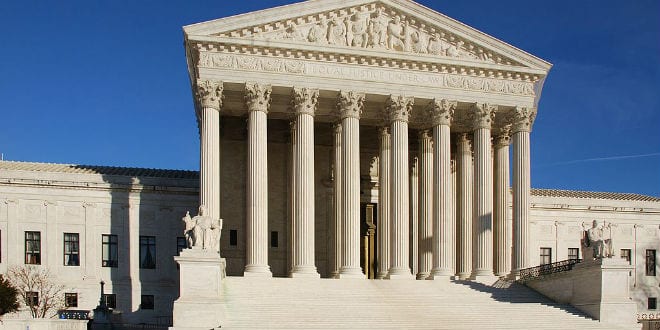
The United States Supreme Court agreed on Monday to examine the constitutionality of a law centers around whether Americans born in Jerusalem may list Israel as their place of birth.
The case, which is before the Supreme Court for a second time, will call into question the issue of checks and balances – Can the president be the sole authority of US foreign policy or can Congress pass laws overriding the president’s policies?
Since Israel’s creation in 1948, no US administration has recognized any nation’s sovereignty over Jerusalem.
The court will review a lower court ruling that overturned a 2002 law that allowed Jerusalem to be identified as belonging to Israel on US passports. The law was passed despite objections from then President George W. Bush who claimed that it infringed on the president’s authority to recognize foreign governments.
Even though Bush disagreed with 2002 law, he still signed it into law as part of a large foreign affairs bill. However, he president issued a signing statement which said that “US policy regarding Jerusalem has not changed” and that he would not follow the law because it “impermissibly interferes with the president’s constitutional authority to conduct the nation’s foreign affairs.”
The Obama administration has taken the same stance as the Bush administration. In court papers, the Obama administration said that allowing Jerusalem to be listed as Israel would “critically compromise the ability of the United States to work with Israelis, Palestinians and others in the region to further the peace process.”
The first challenge to the passport rule was brought to US courts by parents of an American boy, Menachem Zivotofsky, who was born in Jerusalem right after the law was passed. Had he been born in Tel Aviv, the State Department would issue a passport listing Israel as place of birth.
However, according to State Department guidelines, “For a person born in Jerusalem, write Jerusalem as the place of birth in the passport.”
The Zivotofsky’s case reached the Supreme Court in 2012. The court ruled 8-1 that the issue was so political it could not involve itself in the issue.




